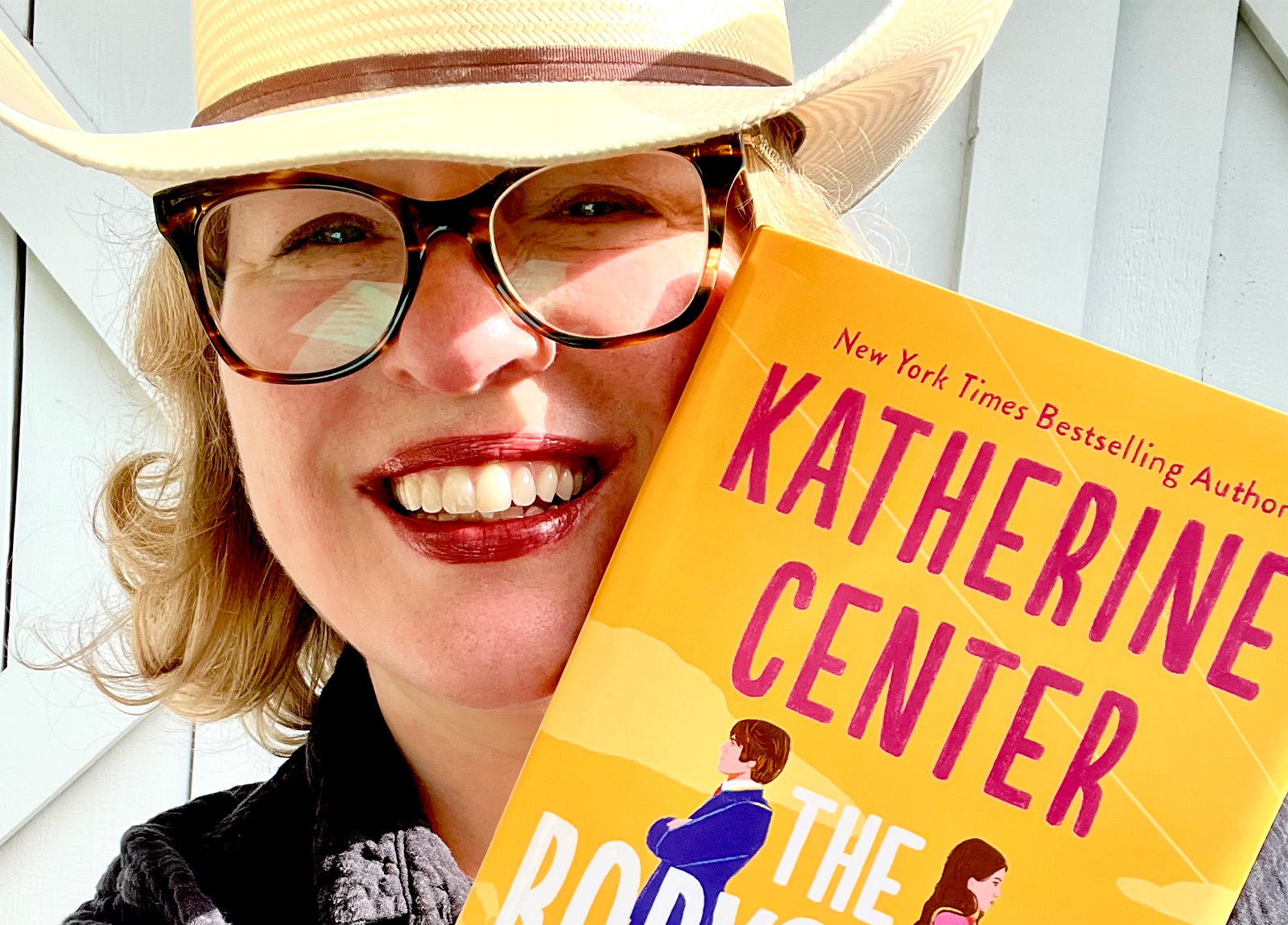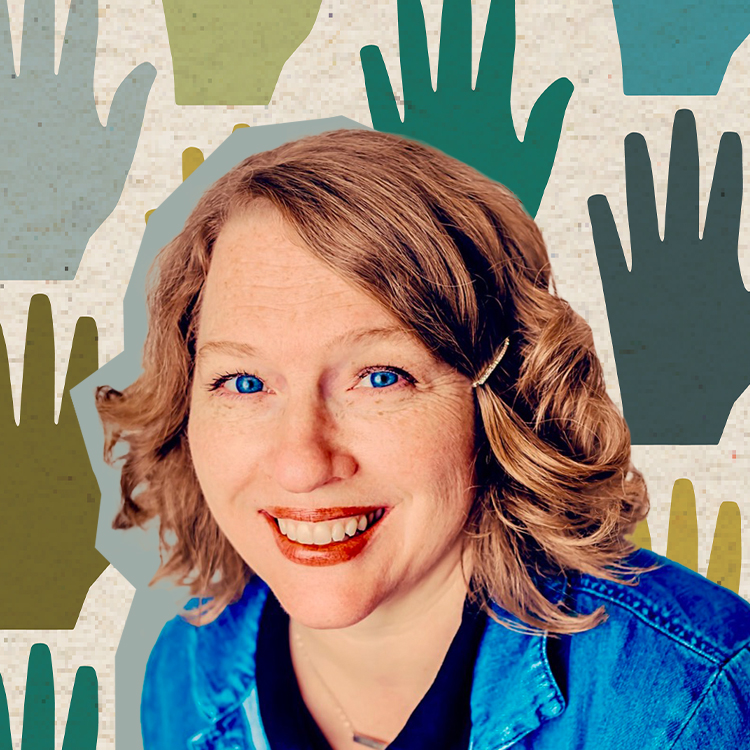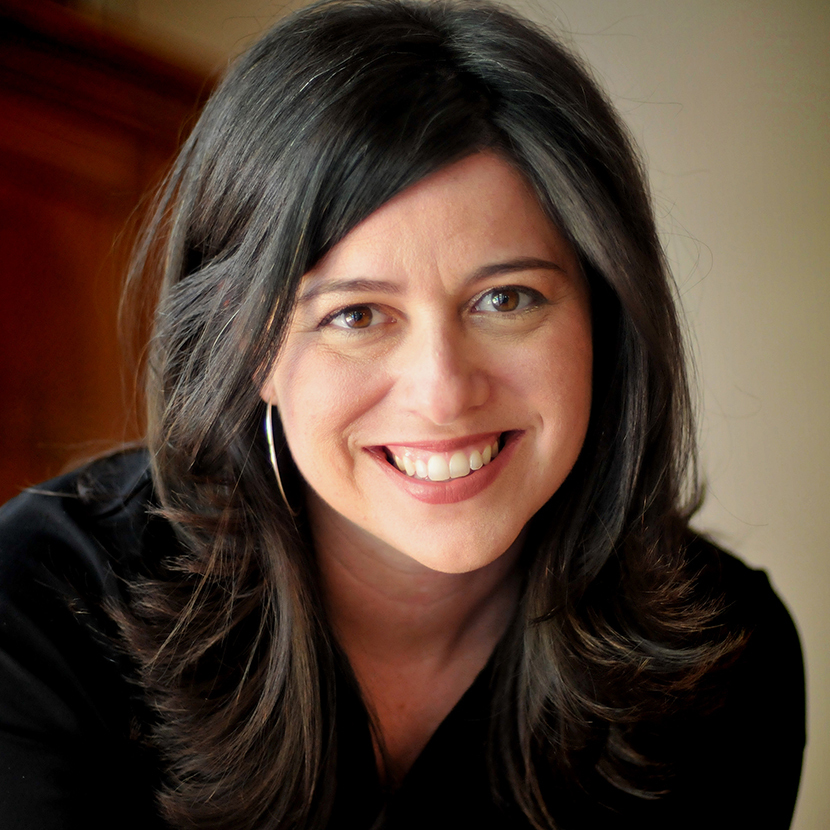Katherine Center knows about love. And she definitely knows love stories. She’s the New York Times bestselling author of many “laugh-and-cry” novels, including How to Walk Away, Things You Save in a Fire, The Bodyguard, her latest, Hello Stranger, and her next book, coming out this June, The Rom-Commers. The Netflix movie adaptation of her novel Happiness for Beginners — starring Ellie Kemper and Luke Grimes — hit the Global Top Ten in 81 countries, and the movie of her novel The Lost Husband was a surprise Netflix sensation in 2020, hitting number one and landing in their top 25 movies for the year. We thought she’d be the perfect person to ask about what makes a true love story.
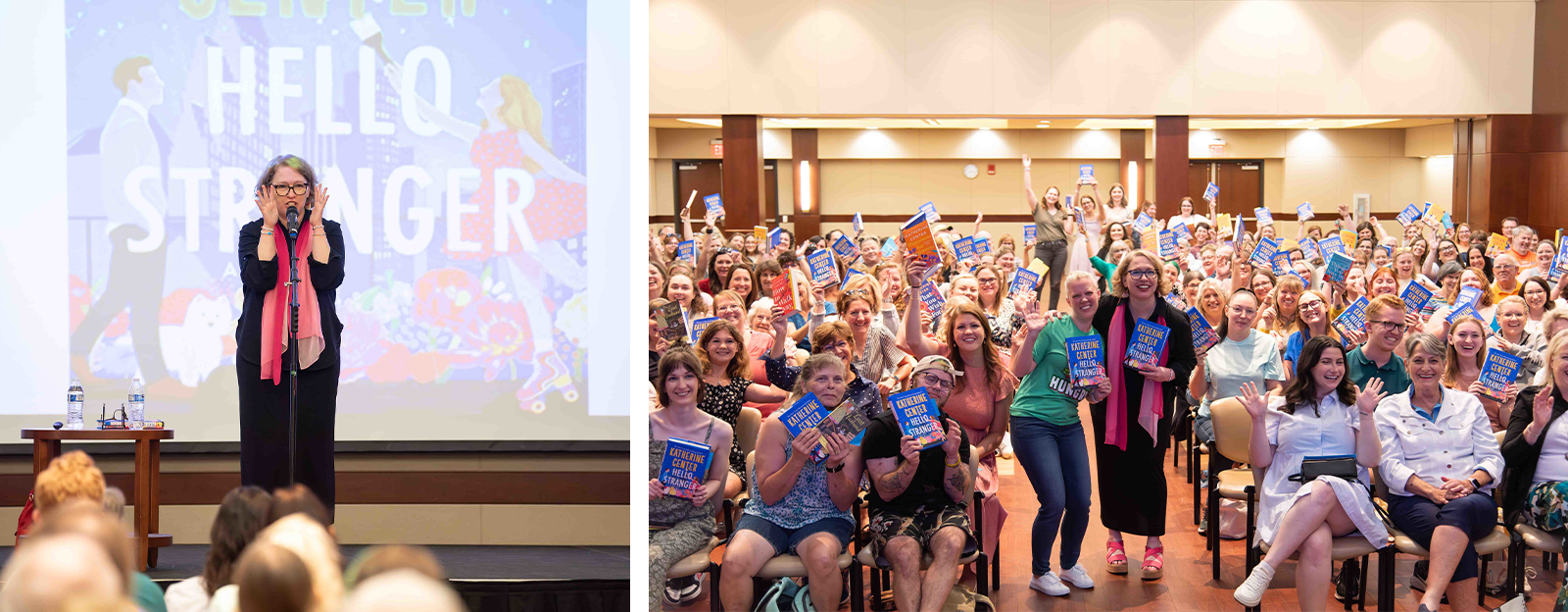
What makes a love story timeless and resonant?
The best love stories make a compelling argument about why love matters. They feature complex characters striving for deep, nourishing human connection in their lives. Done right, these stories are nothing short of blissful. They create a rare and precious kind of emotional experience for the reader: a joyful, oxytocin-infused feeling of having something that matters to look forward to. An experience of hope. In a world that can often make it hard to remember how to feel hopeful, love stories are particularly uplifting. They are actively, unreservedly joyful — and joy is so underrated. Love stories really are about letting us viscerally enjoy the triumph of empathy, compassion, joy, and connection.
Pay attention to what you love. That’s the main thing — and the trick to it all.
Strong and relatable female protagonists are often a feature of your novels. Can you tell us about the qualities you find most compelling in your characters and how you develop them?
I write stories about women who are trying like hell to be the best versions of themselves, despite everything life throws at them. I think of my stories as half women’s fiction and half love story: half struggle and personal growth and coping with hard things . . . and half banter and fun and play. I value the hardships in the story because that’s where the wisdom comes from, and I think stories are uniquely able to teach us wise lessons we need to learn — but I also want the stories to be hopeful, and uplifting, and bright. That’s where the love story comes in. But for all of that to matter, the characters need to feel utterly real, understandable, and 3-D. So I really work to create characters who have a lot to learn and heal from, then throw them into situations that rob them of all their usual defenses . . . and then see what they do. I believe that if we do it right, our struggles can lead us to our strengths. That’s why I love stories about people who get knocked down and have to figure out how to get back up.
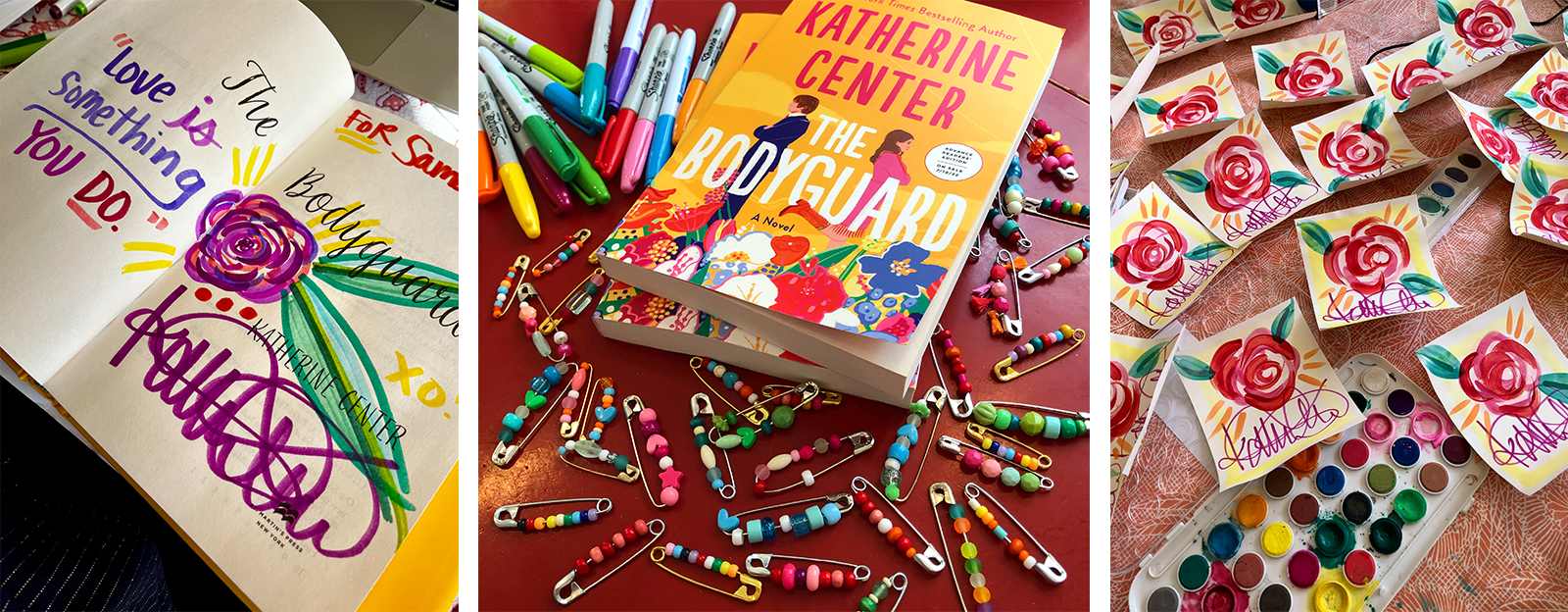
I know you are big fan of Korean romantic comedies. What are your favorites?
Oh, man — how many hours do we have? I discovered Korean dramas during the pandemic and fell in love. K-drama rom-coms are the sweet, swoony, kind-hearted, laugh-and-cry television I’ve been waiting for all my life. They’re like nothing we have on TV in the U.S. A full season of shows dedicated entirely to people overcoming all their internal and external obstacles and falling madly for each other — often healing past traumas in the process. They’re all different, but they all share an essential uplifting kind-heartedness that I find absolutely spellbinding. My gateway K-drama was Crash Landing on You — a smash hit on Netflix in 2020. It’s about a businesswoman who goes paragliding one day, gets caught in a freak tornado, and winds up crashing over the border in North Korea — where she is discovered by the highly dashing Captain Ri, who decides to try to help her get home. They fall desperately in love — and it’s the most inspiring, tender, noble, gut-wrenching, up-all night, swoony fun there is. Other all-time faves: Healer, Goblin, Another Miss Oh, Secret Garden, I Am Not A Robot . . . But seriously, email me and I’ll send you 20 more. The BEST.

Katherine on a book tour in Franklin, Indiana, doing an event for Wild Geese Bookshop at the historic ArtCraft Theatre; photography by Tiffany Phillips and courtesy of Wild Geese Bookshop.
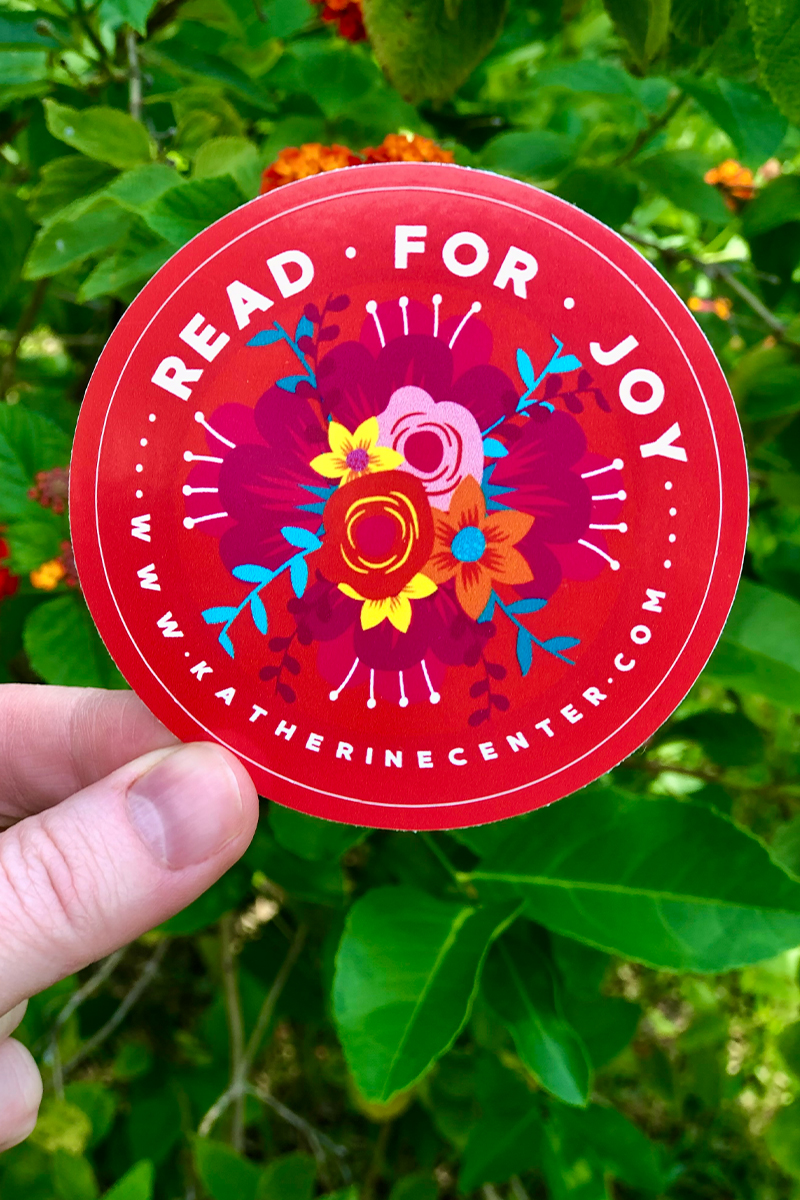
“My battle cry: Read For Joy. It means read for fun, read for pleasure. Follow your own compass about the stories that your soul is longing to hear,” Katherine says; photography by Katherine Center.
Your writing often touches on the idea of second chances. Can you discuss the role of self-acceptance and self-compassion in your characters’ journeys toward love and happiness?
My stories are always about connection — longing for it, striving for it, and working to get better at it — and I think of the journeys my characters go on as being half connecting with others and half connecting with themselves. Acceptance and compassion are crucial for both. For a story about human connection to work, the characters have to really see each other — but that’s almost impossible unless they can do the same for themselves. There’s a lot of healing involved. There’s a lot of re-thinking old assumptions. That’s really what the plots are for: forcing the characters to think differently and find new ways of understanding themselves and the world. It’s true in real life and in fiction. Growth is hard. But it’s also thrilling, and blissful, and beautiful — and sometimes very funny. I want my characters to learn to look for the good stuff, in each other and in themselves, and it’s so inspiring to watch them do it.
I believe that if we do it right, our struggles can lead us to our strengths. That’s why I love stories about people who get knocked down and have to figure out how to get back up.
What advice would you give to aspiring writers who want to create authentic and emotionally resonant love stories that celebrate connection?
Pay attention to what you love. That’s the main thing — and the trick to it all. My career has been the opposite of an overnight sensation, and over the years I’ve seen lots of writers and creative folks come and go. I think I’ve been able to keep at it — even when success (whatever that meant to me at the time) felt elusive — by focusing on the joy of the process rather than on some imagined finish line. This is wise advice for all creatives — and maybe for just everybody in general: Notice the good stuff. Notice when it’s working. Notice moments of laughter and satisfying payoffs and lovely details. Notice when you’re having fun. Work from the heart, not the head — and pay attention to what really resonates. The only compass you can follow as a writer, or an artist, or a person . . . is your own. Stories are such big, complicated, infinite things. The only guide you can rely on is internal — writing the story that you, yourself, would give anything to read. Then you just have to hope that other people want to read it, too.
